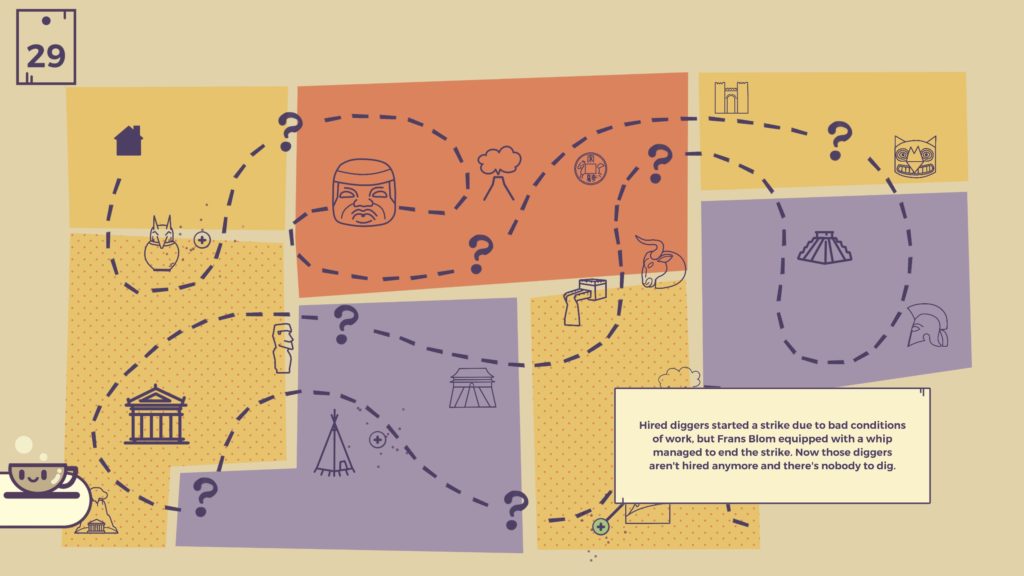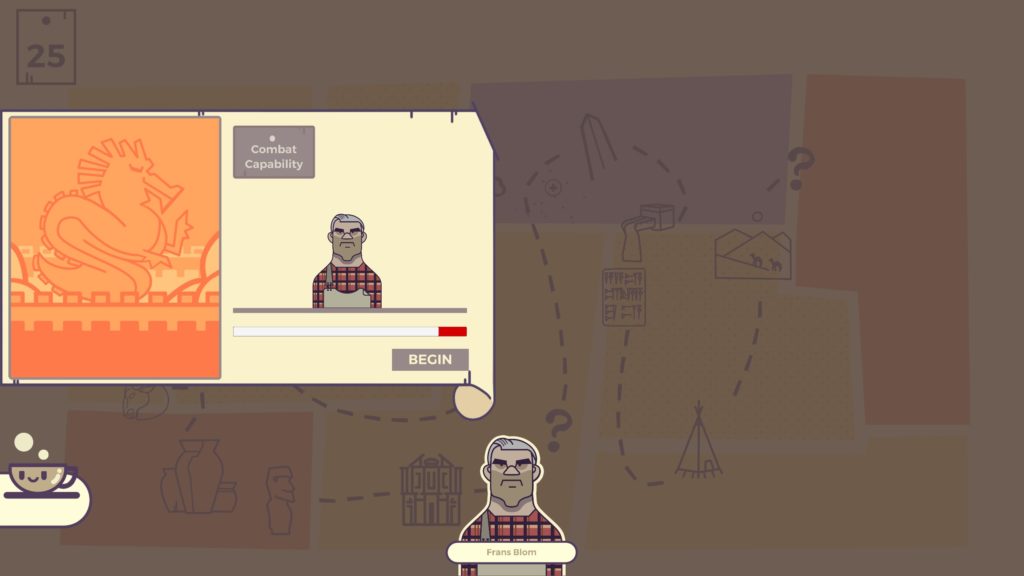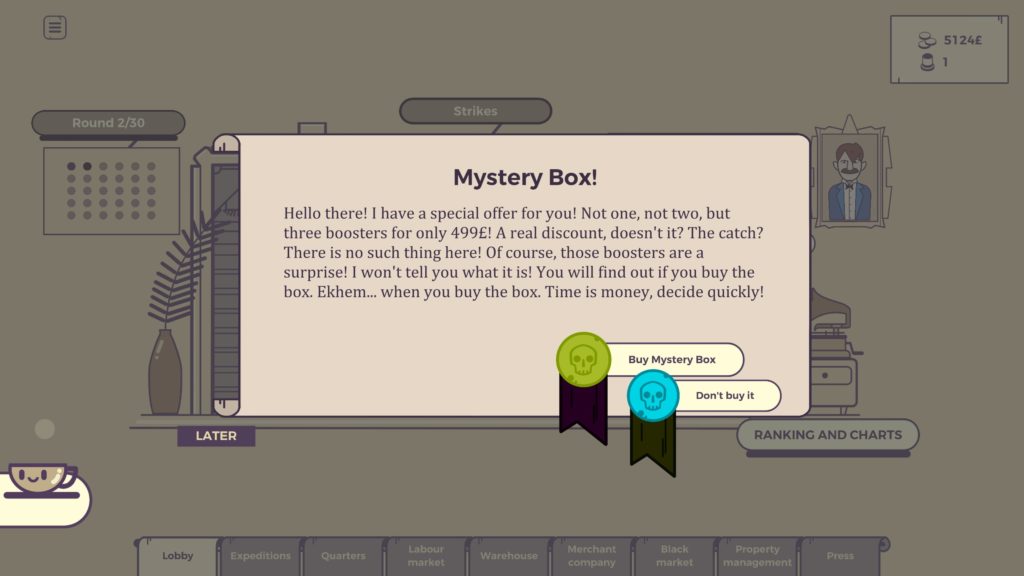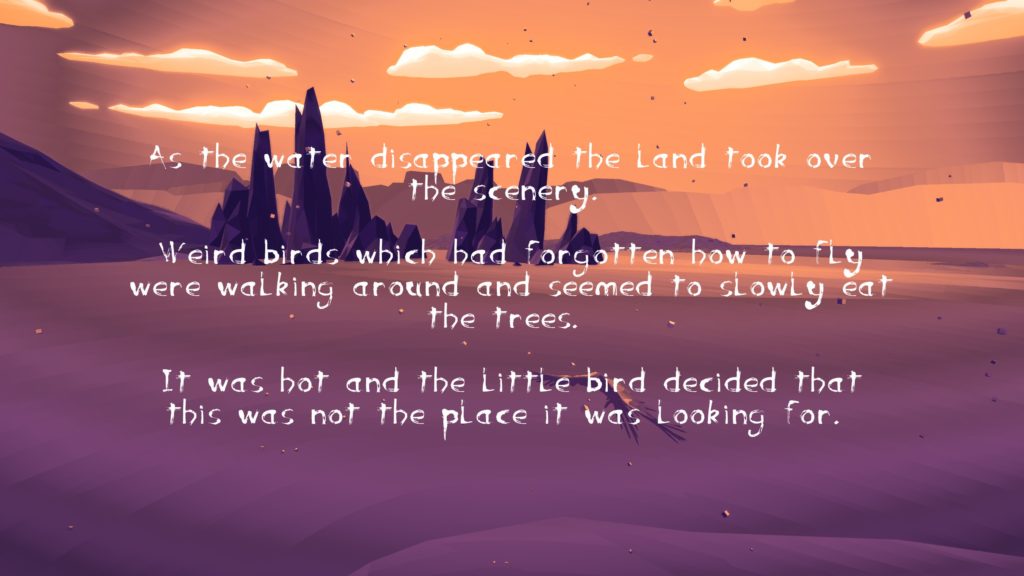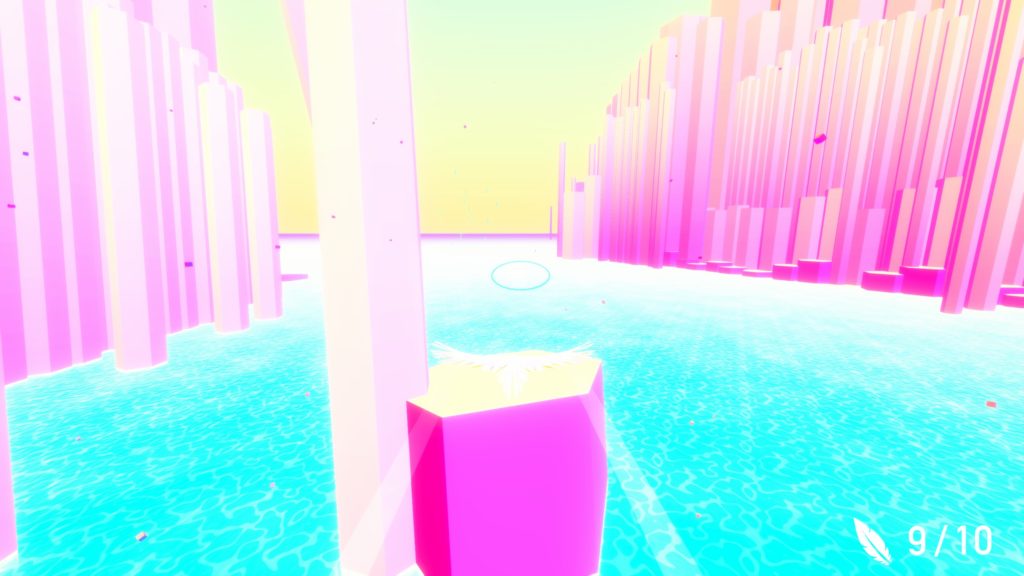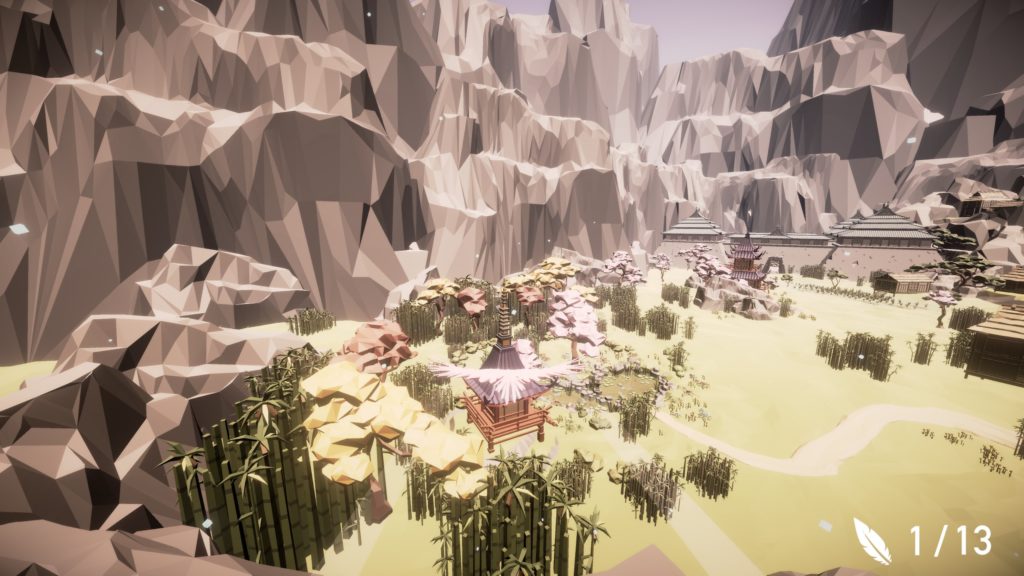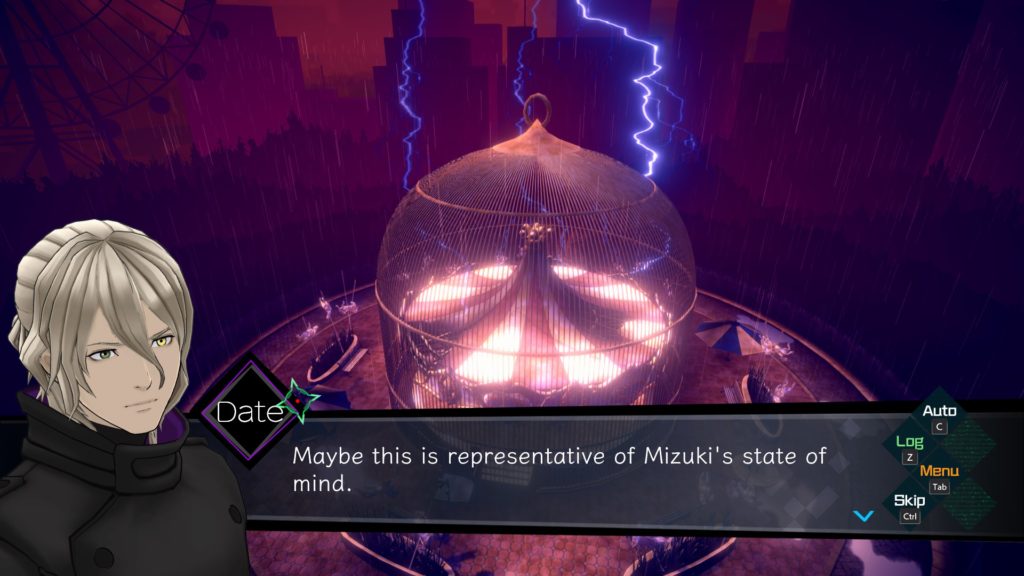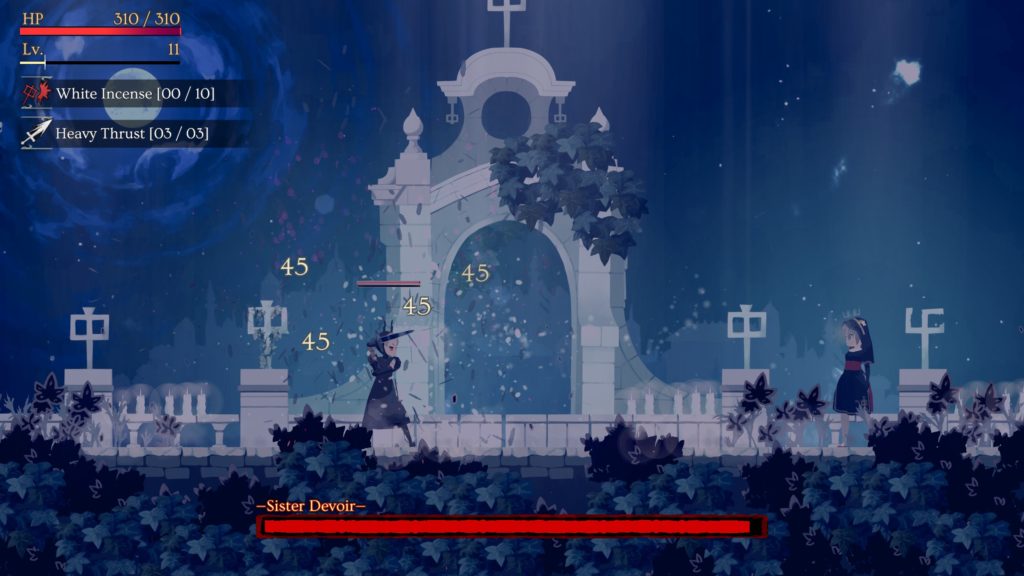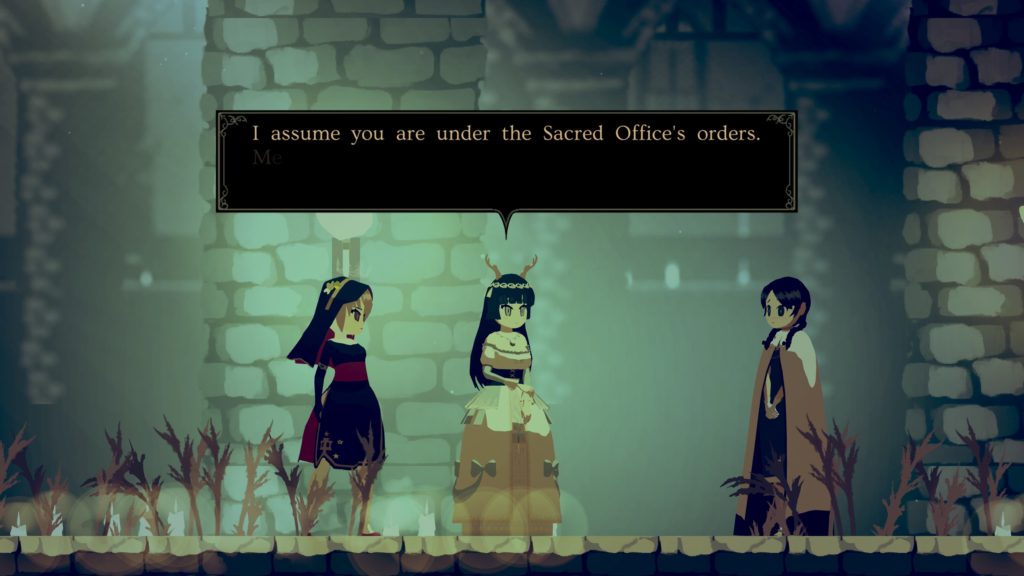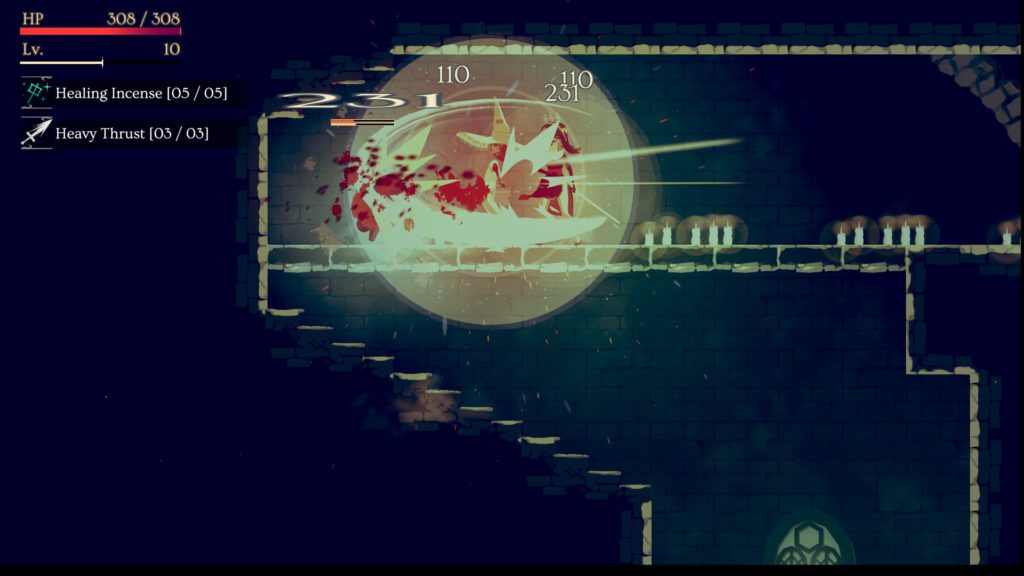Exorcise The Demons (Review)

Source: Review Copy
Price: £19.99
Where To Get It: Steam
Keep Talking, friends, and Nobody Gets Possessed. Had to get that joke in there. Anyway, yes, games with a co-op element can be so fun sometimes. Aaaand sometimes, they’re friendship ruiners. It all depends on who’s playing, really. And so it is with Exorcise the Demons, a game in which one player sees things, but has no idea what they’re doing, and their friend, who knows what the other player’s meant to do, but can’t see anything. Well, if you play it the way it’s meant to be played, anyway.
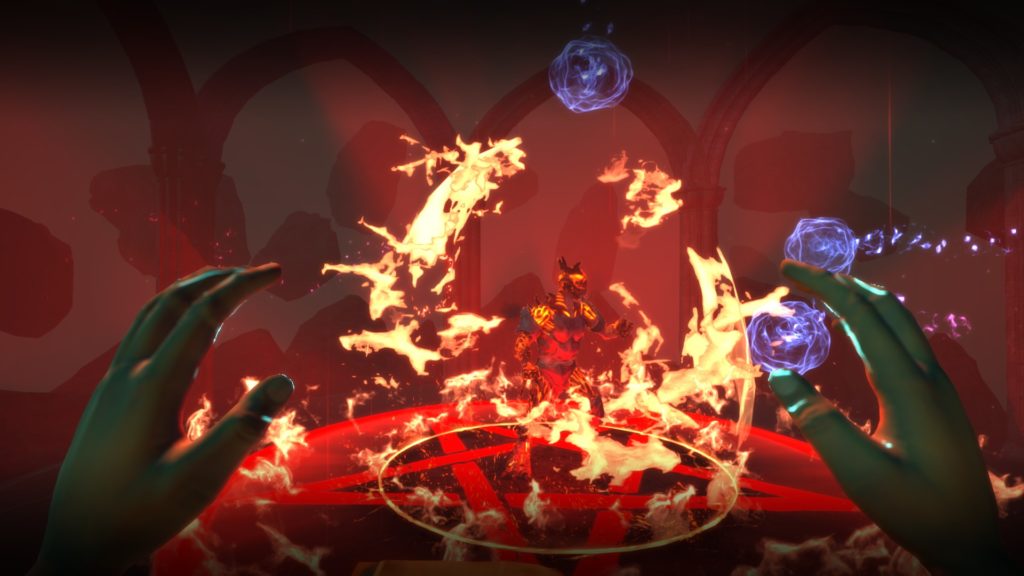
Mechanically, there’s honestly not a lot more to it than that: The main player, in first person, runs around a demonic hellscape, in which there are a potential of 7 rituals to complete. All of them have to be completed successfully before you go up to the flaming book and pentagram, where a demon will appear, and you’ll find out if you have completed them successfully. Do so, and the demon’s fireball aimed at your bonce is shielded against, and you banish them. Fail on one puzzle, even one, and… Congrats, your soul is now theirs. So, naturally, there’s a fair bit of recrimination if you seem to have done everything right (Because there is no “You’ve done this right” sign for any single puzzle), and a bit of relieved joy if you actually have. There’s some physics manipulation involved, but it’s nowhere near as bad as you’d think, as objects set remain set, and the majority is “Click on the thing or drag the thing over the other thing.” Cool.
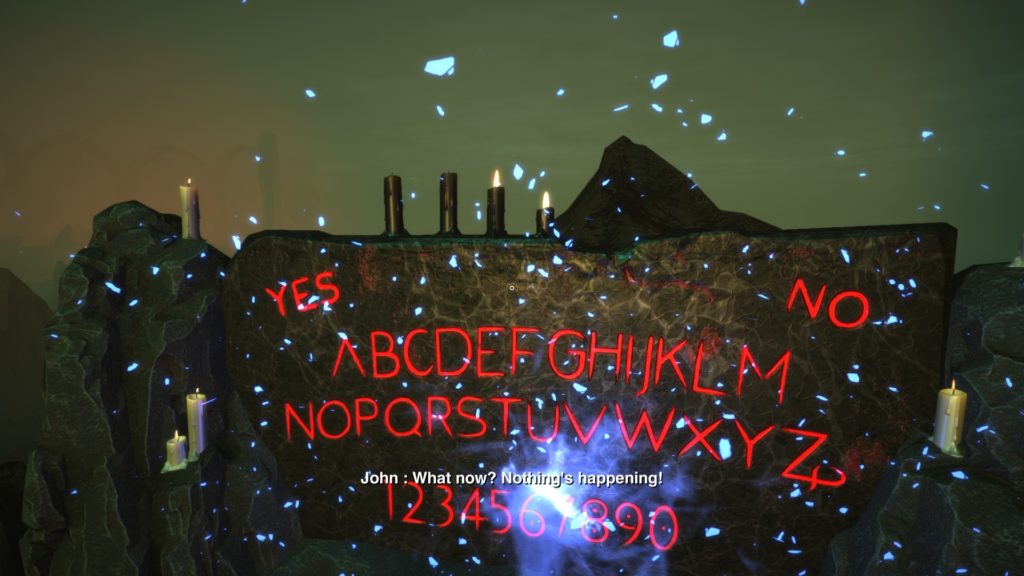
There is also a story mode of 25 levels, about a confused, amnesiac man named John, and his ally, who is… Of no help beyond giving story, so yes, you still need a friend to play this, although they don’t need the game. Story mode is where collectibles get unlocked, and it’s completion only that’s required to unlock things. Cool. And puzzles do appear to be randomised during Story levels too. I didn’t particularly feel like the writing of story mode was really drawing me in, unfortunately, and the voices were… Well, they were alright. So… Let’s deal with the Book of Rituals. Because only one player needs the game, and the other uses this.
The Book of Rituals is, like the bomb manual in Keep Talking and Nobody Explodes, misleading. Not factually misleading, but at times obtuse (the Ouija Board, for example, involves a wordsearch, when all you actually need is the position of the last letter of the demon’s name), and other times, worded so you can easily miss segments (While streaming this, a friend and I consistently failed the Circle of Protection segment. Turns out, there was a small, but significant point we were missing: The colour of the outside flames was the key.)
I’m pretty sure it’s going to be trimmed down by avid players, but it is something to be aware of (“Okay, check M first… Is it red? Okay, from left to right, you need to light the second and third candle, and hit YES on the Ouija Board. Also, I’m deliberately lying for the sake of an example.”)
Finally, there are curses and tattoos. These seem to be in for adding a bit of spice to both the practice mode, and padding out the story levels a little. Sometimes, your controls are wonky. Sometimes, what you see may not necessarily be true. Sometimes, you can freeze time during rituals, and sometimes, you can run faster between puzzles, as examples of precisely half the curses and tattoos available in game. Whee, that was a ride, wasn’t it?
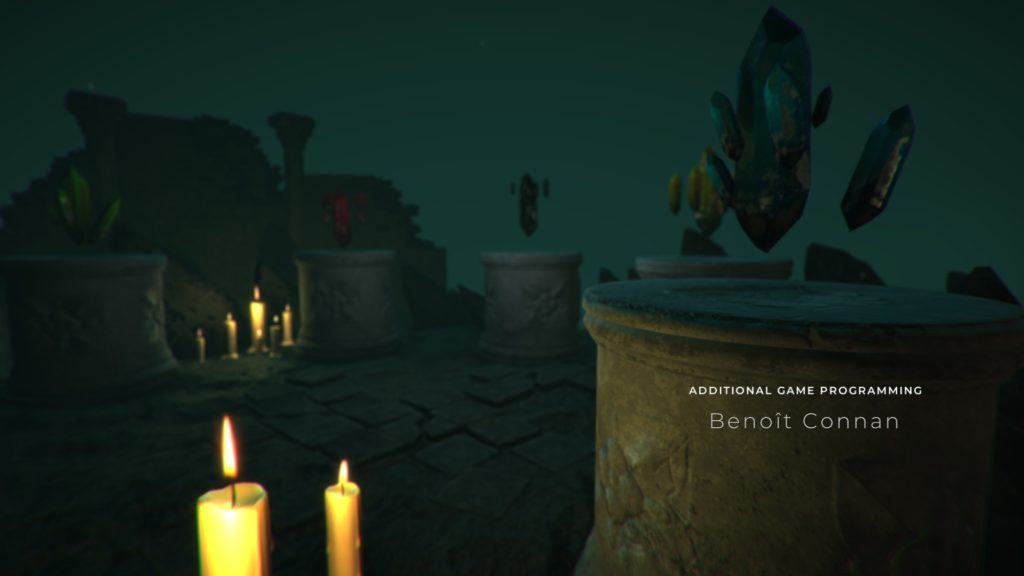
So, obviously, how it feels depends on you and your friend. I had the hardest time communicating the Rune and Crystal puzzles with my co-op partner, although, in the former case, we’d been struggling to communicate at first, and, in the latter case, they have… Green and Yellow crystals. But the developers are, thankfully, aware of this, so I’m expecting a change to happen soon to make it more colourblind friendly. Aesthetically, well, like Keep Talking and Nobody Explodes, you’re going to be looking at the same visual presentation of puzzles, and the same play area a lot. It’s a very pretty one, and I like the grime, grit, and hellfire myself, along with the dramatic music, but be aware, that may or may not pall on you.
Overall, though, Exorcise the Demons does exactly what it sets out to do: Create a supernatural co-op puzzle experience, in which unreliable information is passed between players to co-operatively solve puzzles. And it’s been an enjoyable experience for me. Well, bitter arguments about how to do the Circle of Protection puzzle aside.
The Mad Welshman actually doesn’t mind demons. But it is rude to possess another nonconsensually.


